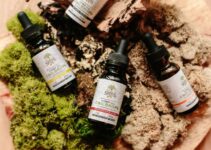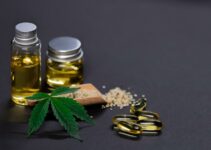As a consumer, I've always wanted to understand the FDA regulations surrounding the safety of hemp-derived oil. With so much buzz around CBD oil, it's crucial to know how it's regulated.
From safety concerns to manufacturing standards and labeling requirements, the FDA guidelines play a vital role.
Let's delve into the essential aspects of understanding FDA regulations on hemp-derived oil safety.
Key Takeaways
- Lack of regulation in the CBD oil industry raises concerns about product purity and accurate dosage, emphasizing the need for FDA guidelines.
- The FDA emphasizes the importance of safety, purity, potency, and contaminants in CBD oil products, highlighting the need for manufacturers to adhere to good manufacturing practices and testing.
- Compliance with manufacturing standards, quality control through testing and monitoring, and proper storage and transportation are essential for ensuring the safety and quality of hemp-derived oil products.
- Thorough testing, quality control measures, and adherence to regulations are crucial for building consumer trust, enhancing confidence, and maintaining product integrity in the evolving hemp-derived oil industry.
CBD Oil Safety Concerns
As a regulatory consultant, I've identified three key safety concerns regarding the use of CBD oil: product purity, dosage accuracy, and potential health risks.
Firstly, product purity is a significant concern. The lack of regulation in the CBD industry means that there's a risk of contamination with pesticides, heavy metals, or other harmful substances during the cultivation and extraction process. This impurity can pose health risks to consumers, especially those with compromised immune systems or sensitivities to these substances.
Secondly, ensuring accurate dosage is crucial. Variability in CBD concentration between products and even within the same product batch can lead to inconsistent effects and potential overdosing. This is particularly risky as CBD is often used for therapeutic purposes, and incorrect dosages can have adverse effects on health.
Lastly, the potential health risks associated with CBD use are a major concern. While research on the long-term effects of CBD is ongoing, there have been reports of adverse reactions such as liver damage, changes in mood, and digestive issues. Understanding and mitigating these risks is essential for the safe use of CBD oil.
FDA Guidelines for CBD Oil
I frequently review the FDA guidelines for CBD oil to ensure compliance and safety in the products I consult on. Staying updated on the legal status and health benefits is crucial for delivering high-quality and safe CBD oil products to consumers.
| FDA Guidelines for CBD Oil | Legal Status | Health Benefits | Safety Precautions |
|---|---|---|---|
| Legal Status | The legal status of CBD oil is complex, with variations in regulations across different states. The 2018 Farm Bill legalized hemp-derived CBD at the federal level, but individual states may have additional restrictions. It's essential to stay informed about the specific laws and regulations in the target market to ensure compliance. | ||
| Health Benefits | While research on CBD oil's health benefits is ongoing, some studies suggest potential therapeutic effects for conditions such as chronic pain, anxiety, and epilepsy. However, it's crucial to communicate to consumers that CBD oil is not a cure-all and should be used as a supplement rather than a replacement for medical treatment. | ||
| Safety Precautions | The FDA emphasizes the importance of ensuring the safety of CBD oil products, particularly regarding purity, potency, and contaminants. Adhering to good manufacturing practices and conducting thorough testing is essential to guarantee the safety and quality of CBD oil products. Consumers should also be advised on proper usage and potential side effects. |
Understanding the legal status, health benefits, and safety precautions outlined by the FDA is fundamental for developing, manufacturing, and marketing CBD oil products responsibly. By aligning with these guidelines, we can promote consumer trust and contribute to the overall safety and efficacy of CBD oil in the market.
Hemp-Derived Oil Manufacturing Standards
Continuing from the previous discussion on FDA guidelines for CBD oil, ensuring compliance with hemp-derived oil manufacturing standards is essential for maintaining product safety and quality. Quality control is a critical aspect of the production process, as it involves rigorous testing and monitoring to ensure that the final product meets established specifications. This includes testing the raw hemp material for potency and purity, as well as conducting thorough analysis throughout the extraction and manufacturing processes.
Adhering to manufacturing standards also involves implementing proper protocols to maintain consistency and purity. This may include using state-of-the-art equipment, following Good Manufacturing Practices (GMP), and ensuring proper sanitation and hygiene in the production facility. Additionally, documenting each step of the production process is crucial for traceability and quality assurance.
Furthermore, quality control measures extend to the storage and transportation of hemp-derived oil to prevent contamination or degradation. It's imperative to store the oil in suitable conditions to maintain its integrity and potency until it reaches the end consumer.
By upholding these manufacturing standards, producers can ensure that their hemp-derived oil products are safe, consistent, and of high quality. This not only meets regulatory requirements but also builds consumer trust in the reliability of the products.
As we delve into the next section on labeling requirements for CBD oil, it's essential to understand how proper manufacturing standards directly impact the information that needs to be included on product labels.
Labeling Requirements for CBD Oil
Transitioning from the discussion on hemp-derived oil manufacturing standards, I will now address the labeling requirements for CBD oil. Product labeling is a critical aspect of ensuring consumer safety and education. The Food and Drug Administration (FDA) has specific guidelines that dictate what information must be included on the label of CBD oil products. These guidelines are in place to provide consumers with important information about the product and to ensure that they are well-informed before making a purchase.
The table below outlines the key labeling requirements for CBD oil products:
| Labeling Requirements | Description |
|---|---|
| Product Identity | The product label must clearly identify it as CBD oil. |
| Net Quantity of Contents | The accurate quantity of CBD oil in the product must be specified. |
| Ingredients List | A detailed list of all ingredients used in the product must be provided. |
| Serving Size and Dosage | Clear instructions on the serving size and dosage of the CBD oil. |
| Manufacturer Information | The name and contact information of the manufacturer or distributor. |
These labeling requirements are designed to ensure that consumers have access to important information about the CBD oil product they are considering. By providing clear and accurate product labeling, manufacturers contribute to consumer education and empowerment, allowing individuals to make informed decisions about the CBD oil products they purchase.
Testing and Quality Control Measures
Testing and quality control measures are essential for ensuring the safety and consistency of hemp-derived oil products. By implementing rigorous testing protocols, manufacturers can guarantee the purity and potency of their CBD oils. These protocols often involve comprehensive analysis for contaminants such as pesticides, heavy metals, and residual solvents, ensuring that the final product is free from harmful substances.
Additionally, testing procedures assess the cannabinoid profile to verify that the product contains the advertised amount of CBD and other cannabinoids, promoting product consistency.
Quality control measures play a pivotal role in maintaining the integrity of hemp-derived oil products. Through consistent testing, manufacturers can identify any variations in the composition of their CBD oils, allowing them to make necessary adjustments to ensure uniformity across different batches. This not only enhances consumer trust but also aligns with regulatory requirements for product consistency and safety.
Furthermore, adherence to stringent testing and quality control measures underscores a manufacturer's commitment to producing high-quality and reliable hemp-derived oil products. Consumers can have confidence in the safety and efficacy of CBD oils that have undergone thorough testing and quality control processes.
As the hemp-derived oil industry continues to evolve, these measures will remain fundamental in upholding product standards and meeting regulatory expectations for safety and consistency.
Frequently Asked Questions
Can Consuming Hemp-Derived Oil With High Levels of THC Lead to a Failed Drug Test?
Consuming hemp-derived oil with high THC levels can lead to a failed drug test. This has potential impacts on employment and legal implications due to THC being a controlled substance.
It's important to be aware of the THC content in hemp-derived products and consider the potential consequences before use. Always ensure the product complies with legal regulations to avoid any unwanted outcomes.
Are There Any Specific Age Restrictions or Warnings for Using CBD Oil Products Regulated by the Fda?
Using CBD oil regulated by the FDA doesn't have specific age restrictions, but it's important to consider warnings and precautions.
For instance, a hypothetical scenario could involve a teenager using CBD oil without parental consent. This could lead to potential health risks and legal implications due to the psychoactive effects of THC in some products.
It's crucial to follow product guidelines and seek medical advice, especially for minors.
How Do FDA Regulations on Hemp-Derived Oil Safety Compare to Regulations in Other Countries?
Comparing FDA regulations on hemp-derived oil safety to international standards reveals differences in quality and certification requirements.
While the FDA focuses on ensuring product safety and efficacy, other countries may have varying standards and testing protocols.
It's essential to consider these differences when assessing the global market for hemp-derived oil.
Understanding the variations in regulations can impact product quality and consumer safety on an international scale.
Are There Any Potential Long-Term Health Effects of Using CBD Oil That the FDA Is Currently Investigating?
Yes, the FDA is actively researching potential risks and long-term effects of using CBD oil. Safety concerns have prompted ongoing studies to understand the impacts on liver health, drug interactions, and possible reproductive issues.
Research findings are crucial in shaping regulations and consumer guidance. It's important to stay updated on the FDA's investigations for a better understanding of the safety profile of CBD oil.
What Steps Can Consumers Take to Ensure the Safety and Quality of the Hemp-Derived Oil Products They Purchase?
I've found that ensuring the safety and quality of hemp-derived oil products involves checking for proper lab testing and clear product labeling.
It's also crucial to stay informed about industry standards and legal compliance. Quality assurance goes a long way, so I prioritize purchasing from reputable brands that prioritize consumer education.





